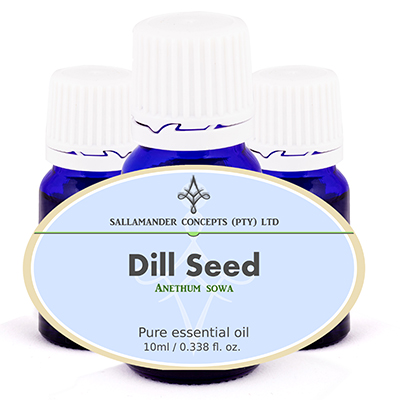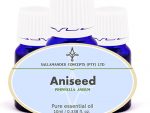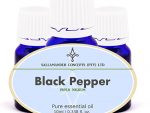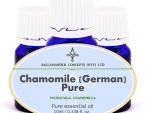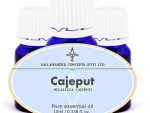Information on Dill Seed Essential Oil
Dill Seed Essential Oil is extracted from Anethum sowa – also known as East Indian Dill and Sowa. It is very closely related to A. graveolens, which is also known as Peucedanum graveolens and Fructus anethi and it is of the Umbelliferae (Apiaceae) family. The properties of these two types are very much alike, although the A. sowa is considered a more “rounded” oil in comparison.
On the psychological plane, Dill Seed Essential Oil is used in aromatherapy to combat the feeling of being overwhelmed and in times of crisis, while physically, it assists with digestion, easing constipation and flatulence, as well as hiccups. It promotes the healing of wounds on the skin.
Oil Properties
Dill essential oil has a grass-like smell and is pale yellow in color, with a watery viscosity.
Origin
Originally from South West Asia, Dill is an annual or biennial herb that grows up to 1 meter (3 feet). It has green feathery leaves and umbels of small yellow flowers, followed by tiny compressed seeds.
It was popular with the Egyptians, Greeks and Romans, who called it “Anethon” from which the botanical name was derived. The common name comes from the Anglo-Saxon ‘dylle’ or ‘dylla’, which then changed to dill.
The word means ‘to lull’ – referring to its soothing properties.
In the Middle Ages it was used as a charm against witchcraft.
Since 1812, when Charlemagne, Emperor of France, ordered the extensive cultivation of this herb, it has been widely used, especially as a culinary herb.
Extraction
Dill essential oil is extracted by steam distillation, mainly from the seeds, or the whole herb, fresh or partly dried. Our oil is extracted by steam distillation from the crushed seed.
Chemical composition
The main chemical components of dill oil are dill apiole (+)-Limonene, (+)-Carvone, (E)-Dihydrocarvone, α-Phellandrenem (Z)-Dihydrocarvone
Therapeutic properties
The therapeutic properties of dill essential oil are antispasmodic, carminative, digestive, disinfectant, galactagogue, sedative, stomachic and sudorific.
Precautions
Indian Dill oil is considered toxic to the liver and the kidneys if it is ingested. There is concern that the high level of Dill apiole found in this oil will have a similar effect as Parsley apiole – it is not recommended for use during pregnancy as it is strongly possible that Indian Dill essential oil is also abortifacient.
Please read our page with heading: Safety with Essential Oils before using this oil.
We recommend the following book as an excellent resource regarding safety:
Essential Oil Safety: A Guide for Health Care Professionals by Robert Tisserand & Rodney Young (#ad)
Uses
Gripe water is often made of the European Dill herb, and this is given to babies and children for colic, or other digestive disorders.
Dill oil helps to overcome the feeling of being overwhelmed and is also helpful for digestive problems in adults, easing flatulence, constipation and hiccups. It eases the mind, calms headaches and helps with excess sweating due to nervous tension.
It is suggested that Dill oil can stimulate milk flow in nursing mothers (through inhalation or diffusion application).
Burners and vaporizers
Dill Seed Essential Oil can be used in vapor therapy for nervous tension, colic and indigestion and especially when you experience a feeling of being overwhelmed and in crisis.
Suggested Dilution Rates
On the skin
We do not recommend the topical use of Indian Dill Seed essential oil.
Indian Dill Seed essential oil should definitely NOT be used on the skin when pregnant or nursing. Indian Dill Seed essential oil can be used by other healthy adults, if it is diluted and is only used on healthy and unbroken skin. but we consider that inhalation will be effective and that you may as well avoid the application of this essential oil to the skin.
Diffusers and Vaporisers
4 to 8 drops
General:
- When using for the first time – Always use the lowest dilution rate and build up slowly to the maximum. Stop using all essential oils on the skin if irritation or allergy occurs.
- Any advice or instruction received from a medical professional ALWAYS supersedes recommendations or advice found on this website. When in doubt consult your doctor / medical professional.
Summary
Indian Dill Seed Essential Oil calms and soothes the nerves and is helpful for digestive problems in adults. Not to be used if pregnant or nursing. We do not recommend the topical application of this essential oil and suggest that this essential oil only be used via inhalation.
Blends
Essential oils normally blend well with one another but Dill Seed Essential Oil blends particularly well with Bergamot, Caraway, Nutmeg and citrus oils.

